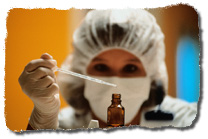Why Testing May be Useful

In one study of clinical diagnosis, based on emergency room visits, two-thirds of the patients for whom the E.R. visit was drug abuse-related would have been misdiagnosed without laboratory testing. An added complication of street drugs is that the user may not be sure, or may have been misinformed, about the drug he or she has taken.
What Testing Does
Urine toxicology screening provides an objective means of detecting use of a wide range of abused substances at reasonable cost. It may help assess the extent of drug involvement both on the basis of the drugs detected and by contrasting the objective findings with the patient’s self report. Follow-up testing after treatment is a useful means of verifying that use is probably not occurring. While negative findings provide no absolute assurance that drugs are not being used (some drugs cannot be readily detected or can only be detected for a brief period of after use), they do establish that drug use has not occurred within the sensitivity of the testing protocol.
Substances that Can be Tested
The drugs for which urine is commonly screened include: amphetamines, cannabinoids, cocaine, opiates and phencyclidine. Multiple screening is usually desirable since it is more cost effective and since seriously involved youth may be using more than one drug.
Confirmation Techniques
More specialized and expensive techniques — such as gas liquid chromatography (GLC) and high pressure liquid chromatography (HPLC) — are available when it is important to confirm the presence of a drug by an alternative means, to very specifically identify the exact drug that is being abused, or to measure more precisely the amount present.
Discussing the Findings with Patient and Parent
Should the interview and/or the laboratory testing give evidence of drug use, the nature and extent of the childs involvement must be explored. If other behavioral signs of drug involvement are present, the test results provide objective confirmation that drug abuse is a central problem.
